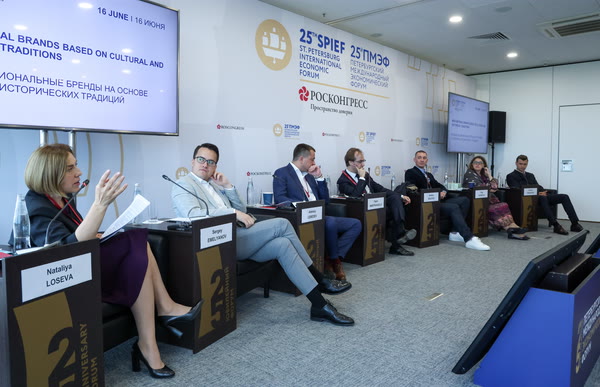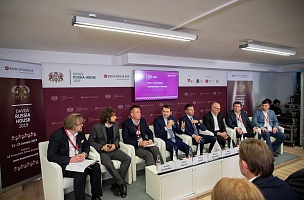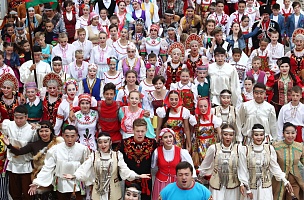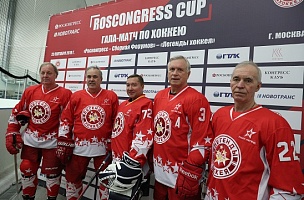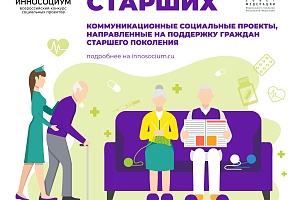Key conclusions
Russia’s historic national brands need no introduction to the world
“In terms of national brands, and more specifically, national brands with cultural and historical traditions, then Russian Seasons is absolutely a stand-out example – one that has remained in the public’s consciousness around the world since it first appeared. It was originally created by Sergei Diaghilev, and the people he worked with at the company – performers, choreographers, etc. – are known virtually throughout the world. To this day, they remain style icons. They are recognized as the best ballet dancers, the best directors, and the best musicians of their time. And as a result, Diaghilev left behind a legacy that remained after all the premieres were over. <...> These people had an impact on the lives of people in Europe, since at that time a fashion for all things Russian emerged. Diaghilev was an innovator, and he introduced things which were incomprehensible to the European audience. However, they were to prove so fascinating that they had a knock-on effect in the world of fashion. Even if we take just one of the most famous ballerinas – Anna Pavlova – the impact was enormous, from the universally beloved and famous dessert that carries her name, to her technical abilities which were ahead of her time,” Aleksey Lebedev, Director, Russian Seasons.
“Today’s Russian Seasons brand essentially marks a revival of Diaghilev’s legacy. The brand emerged in 2017 at the behest of the President and in line with a government resolution. Since 2017, we, as the inheritors of this legacy, are not weighed down by the names of Diaghilev or Russian Seasons. We are endeavouring to show the entire world the richness and diversity of our culture. That’s because naturally – and we always talk about this – even in today’s world, Russian symphonic music and Russian ballet need no advertisements or introductions. In any city in the world, if a Russian ballet performance featuring big names from the Bolshoi or Mariinsky is scheduled, then a full house and public interest are guaranteed. In this regard, the cultural and historical traditions which we have managed to preserve are still drawing foreign interest. I am particularly speaking about our performing arts school, our theatre arts school, and our musical arts school. A great many people are discovering genuinely new things for themselves in Russian culture. That’s because in addition to the classical performance aspects, we have a rich regional identity, a regional culture, and it is interesting in its own right... The development of this area to the requisite level will help boost economic growth in each and every region,” Aleksey Lebedev, Director, Russian Seasons.
“I think that time always puts everything in its right place. We cannot simply turn up and say, ‘It is us, the Russians. Love us and come to our performances’,” Aleksey Lebedev, Director, Russian Seasons.
Cancel culture cannot extend to works of art
“How can you cancel Tchaikovsky? How can you cancel Wagner? How can you cancel those who have already proven everything? And those people who shaped the tastes of generations? And those people who serve as subjects of study? How could any international competition of music, art, choreography, or theatre be held without a single Russian cultural figure? It cannot be done, because we live in such a global world, with such an embedded interplay of cultures, that cancelling a culture – the culture of a particular country – is, in my opinion, impossible. No matter what, six months will pass, a year, a period of time, and everyone will go back to listening to Tchaikovsky as performed by Russian symphony orchestras. And I am sure that nobody can perform Russian music. And nobody can dance Russian ballet better than Russian dance companies,” Aleksey Lebedev, Director, Russian Seasons.
“Should we continue to build national brands, or will this be artificial? We need to work on this right now. You know, we are in a period where we can concentrate on domestic work. It is a time for working on the things which perhaps we ignored before. <...> A historic moment always gives rise to new challenges for everyone, and for the theatre in particular, of course. At the morning session we spoke multiple times about the new European phenomenon – to us at least – of cancel culture. It’ll run its course, and the work we’ll do now can later be used for the truly global market,” Sergey Emelyanov, Director, National Drama Theatre of Russia (Alexandrinsky Theatre).
PROBLEMS
The cancellation of Russian culture
“Can Russian culture be cancelled? Not at all. It’s silly to even think about it, first of all. Even now, I cannot bring myself to believe that intelligent people could allow themselves to entertain this idea. <...> Of course, this is our culture, our Russian culture, but what does that have to do with people who lived 150 years ago, 100 years ago, and so on? It’s pure stupidity, so it really is of great regret to me that the Europeans took this course of action. That said, I can of course see that there is some resistance. I was very much struck by what happened in Gorizia in Northern Italy. Russian violinists were not permitted to enter the music competition there. As a result, the orchestra which was supposed to provide the accompaniment simply refused to play. I think this is a wonderful form of support. These are people who understand that culture and politics should be kept separate – although of course we do understand that culture can be used to help reach political goals,” Fabio Mastrangelo, Conductor; Artistic Director, Music Hall Theatre.
“People keep telling me that <...> I shouldn’t compare things. How can you live that way? You have to make comparisons! During the Siege of Leningrad, was Brahms banned from being performed in the city’s philharmonic halls? Were Beethoven’s symphonies banned? No, they were performed! Did the fact that the music was written by a German make people think, ‘Oh, the Germans are our enemies, so we shouldn’t perform music written by Beethoven’? Now, Beethoven died in 1827, so a few years had elapsed by the time 1941 came around. So, I hope that we will be more intelligent about this. And I think it’s pretty clear to us that what the media says and what is really happening in the country are two different things,” Fabio Mastrangelo, Conductor; Artistic Director, Music Hall Theatre.
Economics vs. culture
“Our shareholders are unlikely to allow us to go completely down the cultural route if it is to the detriment of financial viability. Nevertheless, we are not forgetting about cultural values. In 2019 we went out to Gzhel – one of the oldest management companies with a history dating back to the 17th century. It was in a deplorable state – old women were making products in cold water, dipping the porcelain in, and so on. We decided to take a balanced approach to both culture, and modern trends. Above all, we hired leading consultants and researched why young people – the modern generation – are not buying products made by the Folk Art Crafts Group with any particular zeal. We found out that first of all, everyone recognized the brand. Brand recognition across the country is at 95%. That places it at the same level as Sberbank. However, the products themselves offer little in the way of usability. There’s no real practical value in them. For the most part, these are souvenirs, and the quality of the porcelain is even far behind that made by producers in the CIS. And given the issue around personnel, it is not possible to produce large quantities of products offering high artistic value. <...> We have begun to work on improving each of these areas,” Roman Prokopev, General Director, Folk Art Crafts Group of Companies.
SOLUTIONS
“Of course, there’s no need to introduce restrictions which will lead to nowhere. Quite the reverse – we need to make sure there is an ongoing dialogue. It must not stop. This will help us to show people that ultimately, we are all still human, just as we always have been. So, I think that it’s impossible to cancel Russian culture,” Fabio Mastrangelo, Conductor; Artistic Director, Music Hall Theatre.
Highlighting the industry’s attractiveness to investors
“Investing in crafts is an option. <...> Single items can cost millions of roubles, given that a person would have worked on it for at least a year. This is difficult, painstaking, distinguished work, and investment can help preserve these valuable pieces. <...> A great many things are made to order, and are immediately purchased once they are ready. This is very attractive product to investors, because each piece is a genuine one-off. And our objective is to foster investor interest in folk art and crafts,” Dmitry Kolobov, Director of the Department for the Development of Socially Important Goods, Ministry of Industry and Trade of the Russian Federation.
Combining traditions and modern trends
“We are endeavouring to automate things as much as possible and bring the production cost down at the stages which do not involve much manual work or any artistic skill. However, we are not making any changes to the stages where an item gets its artistic value. We are leaving that to the artists. This way we are ensuring continuity while keeping up with modern trends,” Roman Prokopev, General Director, Folk Art Crafts Group of Companies.
“I’ve just remembered this story, probably from around 10 years ago, when the fashion designer Denis Simachev took the khokhloma style and made it really trendy, in vogue, etc. It seemed that here was this cultural code which everyone was aware of, rather like gzhel. However, it took a person who was fashionable and much in demand to look at classical Russian folklore history and turn it into a fashionable, trendy story invariably associated with Russia everywhere,” Andrey Zolotov, Editor-in-Chief, Robb Report.
“In the new reality that took shape a few years ago we absolutely realised that we needed to employ modern trends to attract new listeners to the concert hall. I think it’s very important that the concept of the creative industry has emerged. One way or another, we are all slowly headed in this direction, combining various forms of synthesis and making art. All cultural institutions have long followed the principle of combining different forms of art. Of course, everything started with music and words. Concerts and performances were put on, which were then combined with painting. Artists began to draw music, and of course, later (as Fabio mentioned regarding national identity and Russian national cuisine) we saw music and the culinary arts. This is a fantastic brand. <...> In fact, this tradition began a long time ago – we were not the ones to think it up. It was Bach – the most creative composer – who 200 years ago wrote the Coffee Cantata,” Olga Khomova, General Director, State Academic Capella in St. Petersburg.
“Do we want what works, or what looks right? That’s the perennial dilemma in crafts. Well, we want both. That’s because crafts are a unique part of our country’s heritage. And today there are almost 500 companies spread across our vast Motherland. <...> Of course, crafts were always brands. Turning to the question of new national brands: there were always brands and brand‑focused companies, just like there are today. For example, the famous Orenburg shawl emerged due to it being taken to the Paris Fair, being photographed, and appearing in Peterburgsky Vestnik. From this, a question arises: who shaped demand? The Parisians? No, it was shaped by the people of St. Petersburg. <...> It was a marketing ploy, as they say today, but it helped the company come into being. And we are endeavouring to revive this culture of brand management by companies engaged in folk arts and crafts,” Dmitry Kolobov, Director of the Department for the Development of Socially Important Goods, Ministry of Industry and Trade of the Russian Federation.
Studying one’s own country and culture
“I feel optimistic today, because we have reworked the regional agenda. We have set up a great many initiatives together with our regions, and this has made it possible for remote regions to come to us. We have colleagues from Yakutia, and are currently holding talks with Siberia and the Far East. This is all very interesting, not least because the regions are showing completely different sides to themselves. Despite our knowledge of Russia, a few things were even unknown to us. And these represent new opportunities to establish national brands,” Olga Khomova, General Director, State Academic Capella in St. Petersburg.
“All this global hysteria is absolutely a temporary phenomenon which we’re currently up against. <...> Russia is a great and vast country with a diversity of cultures. We need to study this and delve deeper into our history and culture, because nobody will promote us better than we will ourselves. So, this is what we need to do during this period – to immerse ourselves as fully as we can in things which we have here at home, and which we were perhaps unable to examine in detail back amid all the commotion that always existed,” Sergey Emelyanov, Director, National Drama Theatre of Russia (Alexandrinsky Theatre).


